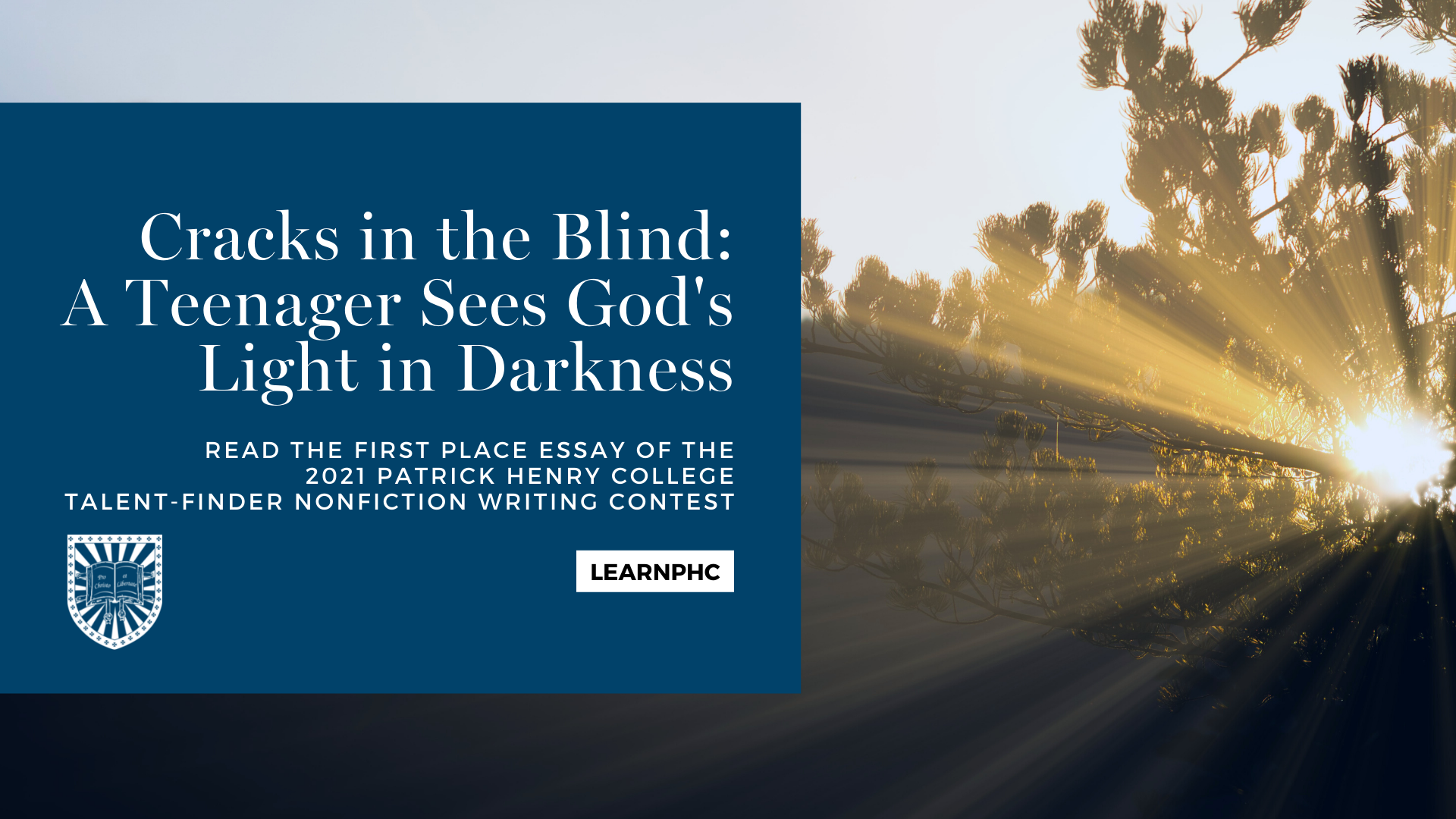
This is the winning essay of the 2021 Patrick Henry College Talent-Finder Nonfiction Writing Contest, written by Anastasia Brown.
On Jan. 1, 2020, I wrote a list of all the things I was looking forward to in the upcoming year. Track season, the state science fair, a big church conference, our county fair, a family vacation. And at the bottom—written in small letters, because I could barely believe the good news—a baby sister due in August.
In March, COVID-19 came to the US. School shut down. We were told to quarantine. All our shopping had to be done online. Everything we needed came in Amazon boxes that we sprayed with disinfectant before opening. And, of course, all those big events were cancelled. Every last one.
Including the little sister.
At the 20-week ultrasound, we were given a rare diagnosis of bilateral renal agenesis—my baby sister never developed kidneys. The kidneys produce the amniotic fluid that fills the womb, and her little lungs were supposed to use that fluid to practice breathing. Without the fluid, her lungs would never fully develop—and when she was born, she would be incapable of taking in enough oxygen. There is very little research done in this area, and there is no treatment. It’s terminal in every situation.
At first I wasn’t sure how to relate to anyone. Infant loss is rare today in the U.S. I had always viewed it as belonging in the world of Little House on the Prairie—not something I was anticipating ever experiencing. And, even more un-nerving, nothing seemed wrong from the outside—it was just the words of a doctor about a grainy ultrasound picture.
I tried to hold on to the irrational hope that maybe this was all some big mistake, but it was hard to convince myself. So, what was I supposed to do? How was I expected to act? I felt cold inside, I had a hard time crying—would people think I didn’t care? I didn’t talk much—would they think I was insincere? I felt alone.
But I wasn’t alone. So many people truly cared; they encouraged me in different ways, and I appreciated it all. The pandemic stopped visits, but my friends still reached out. Some tried to remind me that “while there’s life, there’s hope,” or shared stories they found of medical miracles. I was surprised that I drew more comfort from knowing they were thinking of us than from the actual words.
If they had no words—if they just FaceTimed me and listened to me rant, then told me they loved me and were praying for me—that was immeasurably comforting. One friend sent me a funny board game and a note that they hoped I would have some fun with my family. My grandma reminded me to eat enough.
After my little sister was born—and passed away within the hour—they continued to stand alongside us. Many friends left us meals, wrote comments on the Facebook posts my mom made, and told us they had gone down to visit the grave. They were small actions, but as my mind grasped for hope, they took on so much meaning.
Light and darkness are opposites. And yet hope comes when you realize that the two are not equals. Darkness is nothing more than the absence of light, so as soon as the light appears the darkness is banished. Even the tiniest stream of light through the blind into a dark room can make everything visible in a bluish haze.
Losing my sister was the darkest room I ever stumbled into, but each friend who came alongside my family was a little beam of light that gradually broke in and illuminated my path. I don’t understand why it all happened—some corners of the room may forever remain in the shadows—but I know where I am and who is with me.
---
This essay was originally published in the Patrick Henry College weekly Journalism newspaper, The Herald. Learn more about the PHC Journalism program below:

.png?width=800&height=400&name=PHC%20(1).png)


